
Newsletter Sign Up
Sign up today to our quarterly newsletter
View more
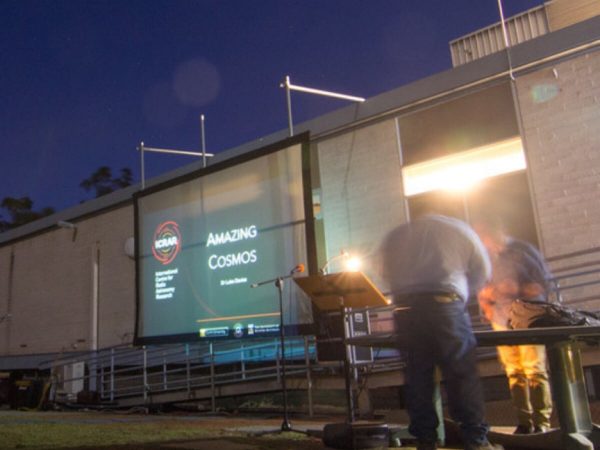
It was the first time that the Volunteer group had run the lecture by itself although we have always been very involved with managing the evening – helping with car parking and checking people in at the gate, this year it was only us. Well, having said that, we had a massive amount of help from Rob, the maintenance person at the observatory. He organised all the setting up that was necessary from getting the presentation area organised – the projector, the screen (a big job getting that set up) to setting up the barbecues, mowing the lawn and telling the kangaroos to keep off. Well, he would have done if they would take any notice. As it was, all the commotion kept them away. For those who don’t know we have wild kangaroos on site most of the time, they tend to vanish when there are too many people about.
Visitors always arrive early for a picnic or a sausage sizzle but this year we also had a coffee van and an ice-cream seller. The coffee van did a good trade but I’m not so sure about the ice cream – there was a decidedly chilly strong wind blowing most of the evening.
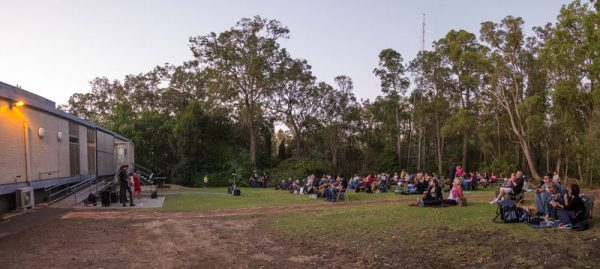
For the second year, we decided to have some entertainment and once again the group ‘Effulgent’ did us proud. Megan, one of our volunteers is the singer and she organised a program of songs that were popular around the time particular astronomical events took place starting with “Where’er You Walk” (Handel) which was written a year after Edmund Halley’s death; through Dusty Springfield’s ‘Son of a Preacher Man’ written a year before the first people walked on the moon and two years after Perth Observatory moved to Bickley; to Monty Python’s ‘The Galaxy Song’ produced two years after the Space Shuttle, Columbia, made its maiden flight.
The array of songs was impressive – something for all tastes.
Our speaker this year was Luke Davies from the International Centre for Radio Astronomy Research (ICRAR) at the University of Western Australia, Perth. His research looks at how galaxies have changed from the Big Bang to the present day and looked at answering important questions about the universe such as how did the first groups of stars come together to form galaxies, how do galaxies change as the Universe expands over time and how do we eventually form galaxies like our own Milky Way.
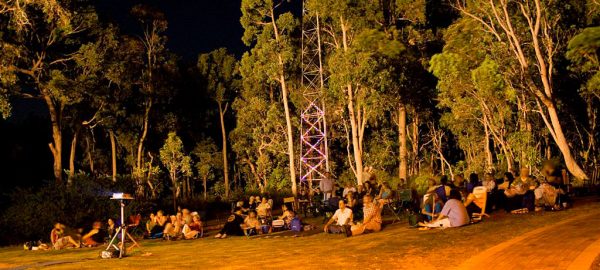
We had asked Dr Davies to talk on “The Amazing Cosmos” and his presentation was enthusiastic and interesting. He discussed stars and commented that stars are pretty boring but their birth and death are very interesting. He talked about the ways stars die and the results of their deaths, one of which is the formation of a nebula which is, of course, the birthplace of new stars. He discussed the search for exoplanets and the search for signs of life in areas hundreds of light-years from Earth, a topic that is always intriguing. The main content of the talk was related to galaxies, including the position of our solar system in the Milky Way Galaxy, and initially, the galaxies close to us – including the fact that the Andromeda Galaxy is going to eventually collide with the Milky Way – a very long time in the future which we were all pleased to hear.
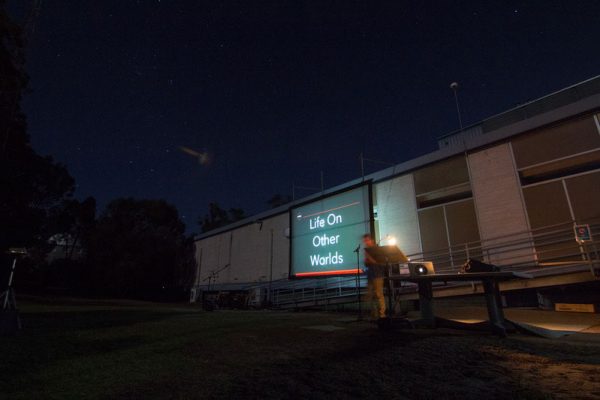
Dr Davies slowly took us further and further into the universe demonstrating the unimaginable size of the universe very effectively and talking about the equally unimaginable number of galaxies until he reached the edge of the known universe. One of the slides towards the end of the show was of a very small area of sky taken by the Hubble telescope and containing an uncountable number of galaxies. Near the end, he talked about the discovery of gravitational waves and how they would extend our understanding of the universe and touched briefly on the Square Kilometre Array (SKA) which should keep Western Australia at the forefront of astronomical research. We always manage to get interesting talks for our Summer Lectures and this was no exception. Thank you, Dr Davies.
We finished with a trial night sky viewing from the lawn using laser pointers. Unfortunately, the trees prevented it working as well as it might have done. However, Garth’s talk about the myth of Orion and the Seven Sisters was very well received and it was good to have something to finish up the evening.
A great evening and I’m looking forward to next year’s Summer Lecture.

Sign up today to our quarterly newsletter
View more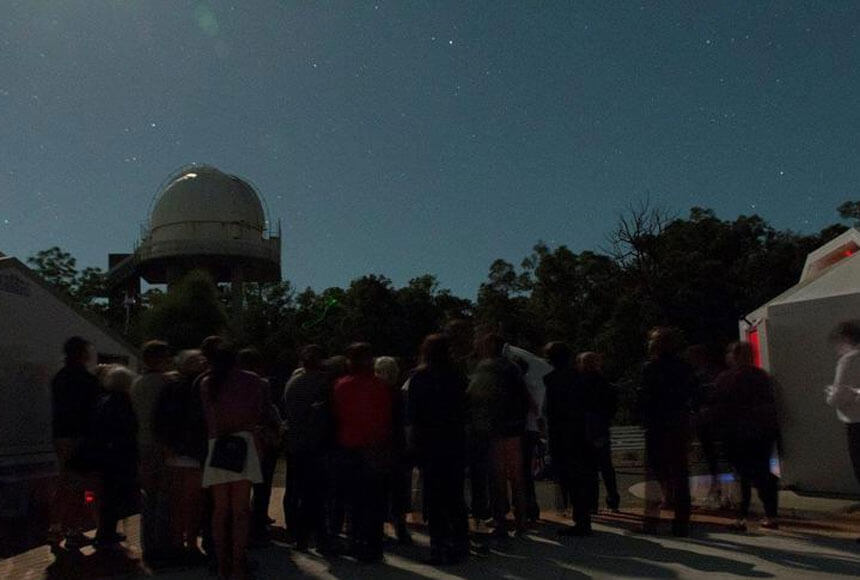
Let others know of your experience
View more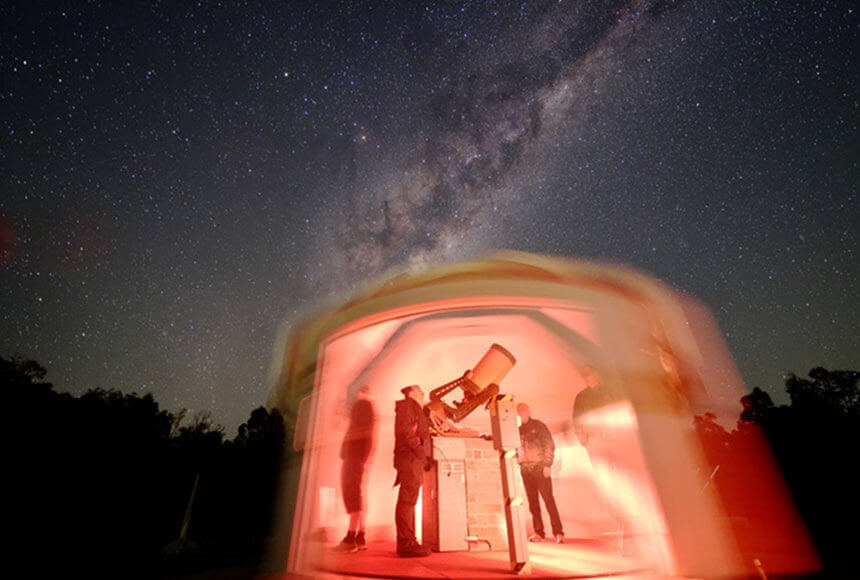
Become an awesome volunteer
View more